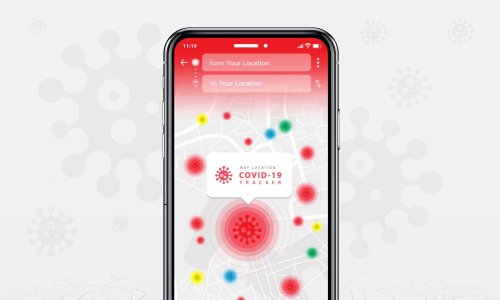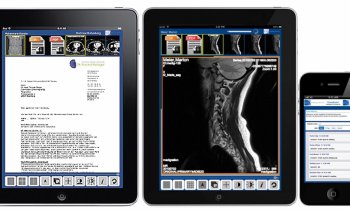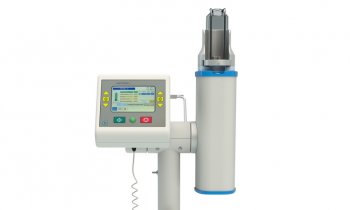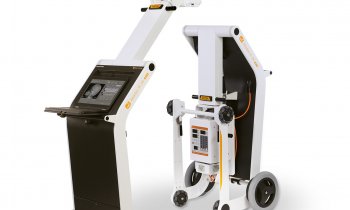Image source: Unsplash/Viktor Talashuk / Screenshot: University of Cambridge (editing: HiE)
News • Downloadable helper
World’s first artificial pancreas app licensed for type 1 diabetes
The world’s first licensed, downloadable artificial pancreas app for people with type 1 diabetes now launched, based on over a decade of research by Professor Roman Hovorka at the University of Cambridge and Cambridge University Hospitals NHS Foundation Trust.
The CamAPS FX app works with an insulin pump and a glucose monitor to automatically deliver insulin to people living with the condition via a complex algorithm. Around 400,000 people in the UK are affected by type 1 diabetes, 29,000 of them children. It is a chronic, life-threatening condition that has a life-long impact on those diagnosed with it and their families. Currently, people with type 1 diabetes rely on a routine of finger-prick blood tests and insulin injections or infusions just to stay alive, because their pancreas no longer produces insulin itself.
This is a major stepping stone towards providing widely available, clinically proven, and user-friendly artificial pancreas technology to people with type 1 diabetes
Roman Hovorka
The app – which Professor Hovorka hopes will become available on the NHS in the future – will take over much of the management of the condition. This is particularly important at night, when many people with type 1 diabetes experience potentially dangerous low blood glucose levels. The app can also upload the user’s blood glucose measurements seamlessly to Diasend, an online platform, allowing their diabetes team to provide more personalised care.
The CamAPS FX app is backed by 13 years of clinical research carried out by Professor Hovorka and his research group at the Wellcome-MRC Institute of Metabolic Science. It is licensed for use by both adults and children with the condition and is the first artificial pancreas system to be licensed for use in pregnancy, or by young children aged one and above. Professor Hovorka said: “This is a major stepping stone towards providing widely available, clinically proven, and user-friendly artificial pancreas technology to people with type 1 diabetes. Our aim is to alleviate the ever-present burden of type 1 diabetes and improve health outcomes. This is the outcome of hard work, with more to come. We are indebted to all who are helping us on this journey.”
At launch, the app will be supported by a small number of UK diabetes clinics. People who wish to use the app will need to confirm which clinic they attend, and must be using a Dana RS pump and a Dexcom G6 continuous glucose monitor. Professor Hovorka and his research team will work to continue to bring this technology to all who need it, via the NHS. Key to this will be the generation of data to support the case for NHS provision.
The commercial launch is a milestone in the journey towards a fully automated artificial pancreas for everyone with type 1 diabetes. Such technology will fundamentally change life with the condition by working with a range of insulin pumps and glucose monitors to lift the burden of managing a condition that is relentlessly unpredictable day and night. Professor Hovorka will continue refining the artificial pancreas through research into mealtime glucose control and improving ease of use.
The research behind the app has been funded by the type 1 diabetes charity JDRF, Diabetes UK, the National Institute for Health Research, the National Institutes of Health, Horizon 2020, and The Leona M and Harry B Helmsley Charitable Trust. Karen Addington, UK Chief Executive of JDRF, said: “JDRF is proud to have supported Professor Hovorka’s artificial pancreas research from the beginning, nearly 15 years ago. This app is a major innovation and a significant milestone on the road to a fully automated and interoperable artificial pancreas. There’s still more work to do, but this is an exciting step.”
Fiona O’Reilly, who has been using the app as part of a clinical trial, said: “Overall, it makes me feel free. It is the closest I have been to living without the burden of type 1 diabetes since I was diagnosed, which is a fabulous feeling – I feel less fearful of hypoglycaemia, and less ashamed of the fact that I find achieving good glycaemic control so tricky. And it makes me feel more positive of my future with diabetes, that I have a chance of avoiding all the associated complications. It also makes me feel lucky to live in a time where this technology is possible and really grateful to be given the chance to try it out.”
The app is now available for UK users to download onto Android phones via the Amazon Appstore. The app is available on a subscription basis starting at £70 per month.
Source: © University of Cambridge (CC BY 4.0; adapted from a press release by the JDRF)
17.03.2020











